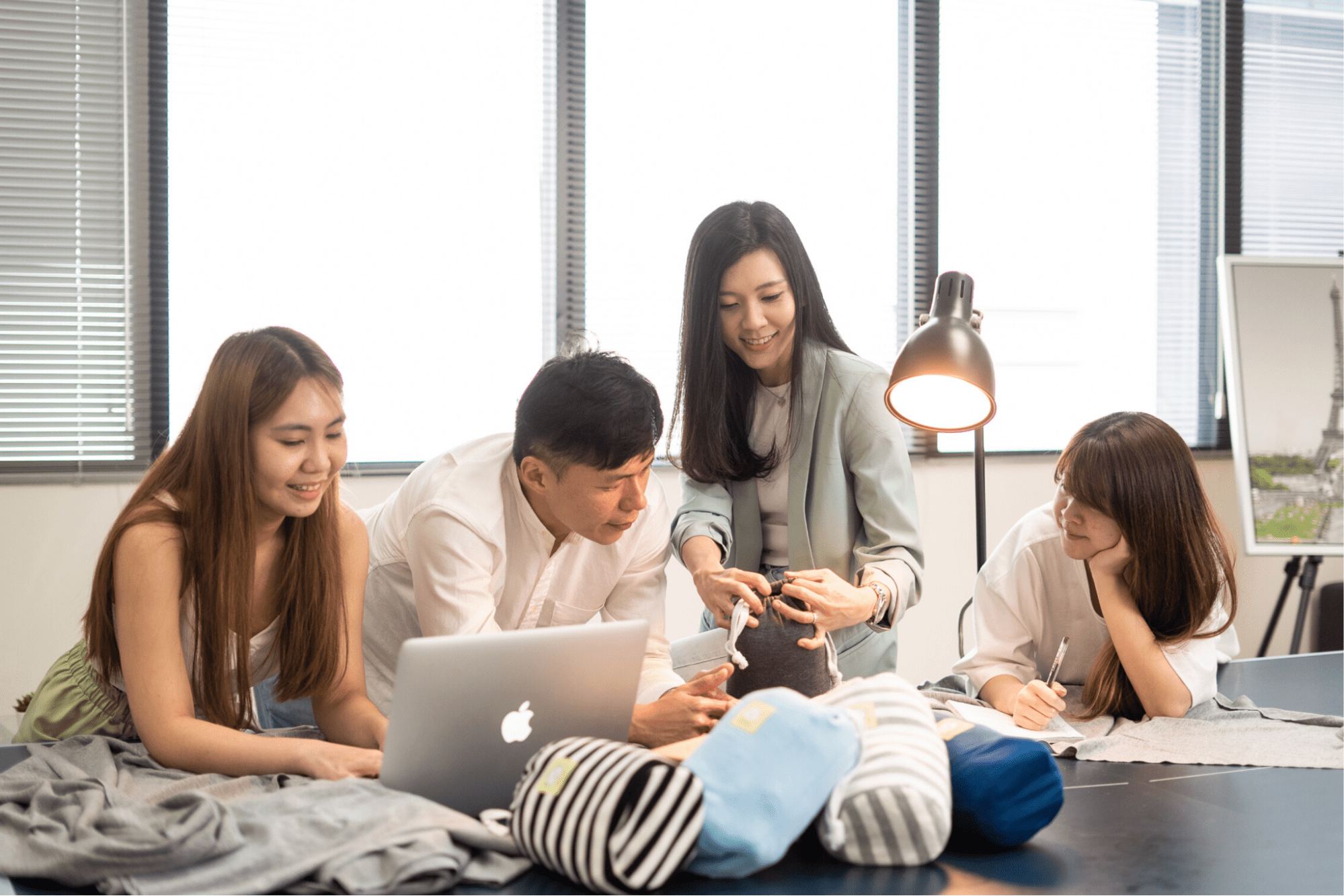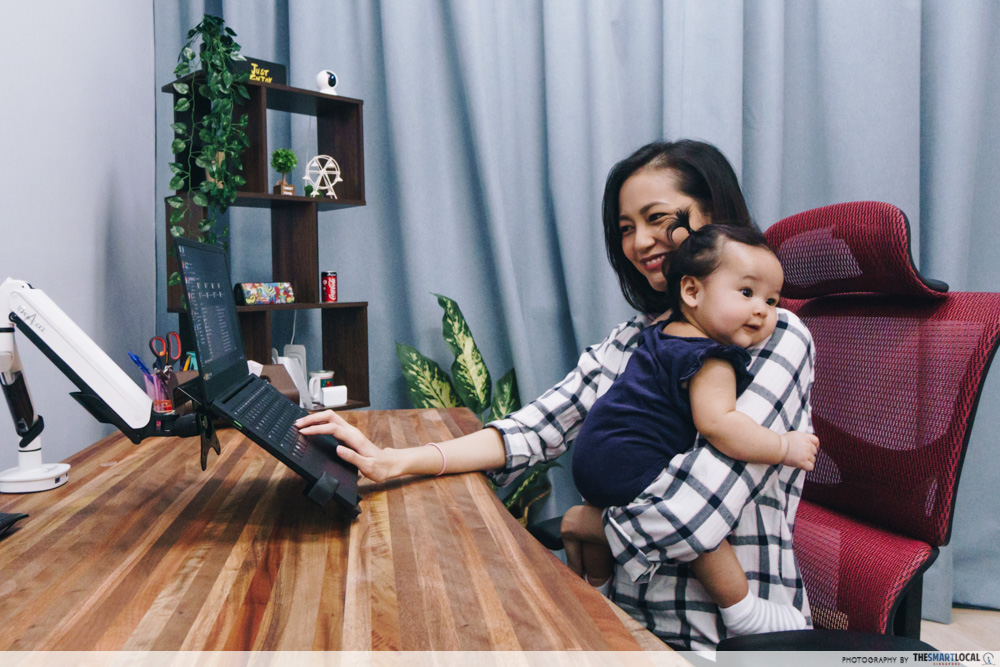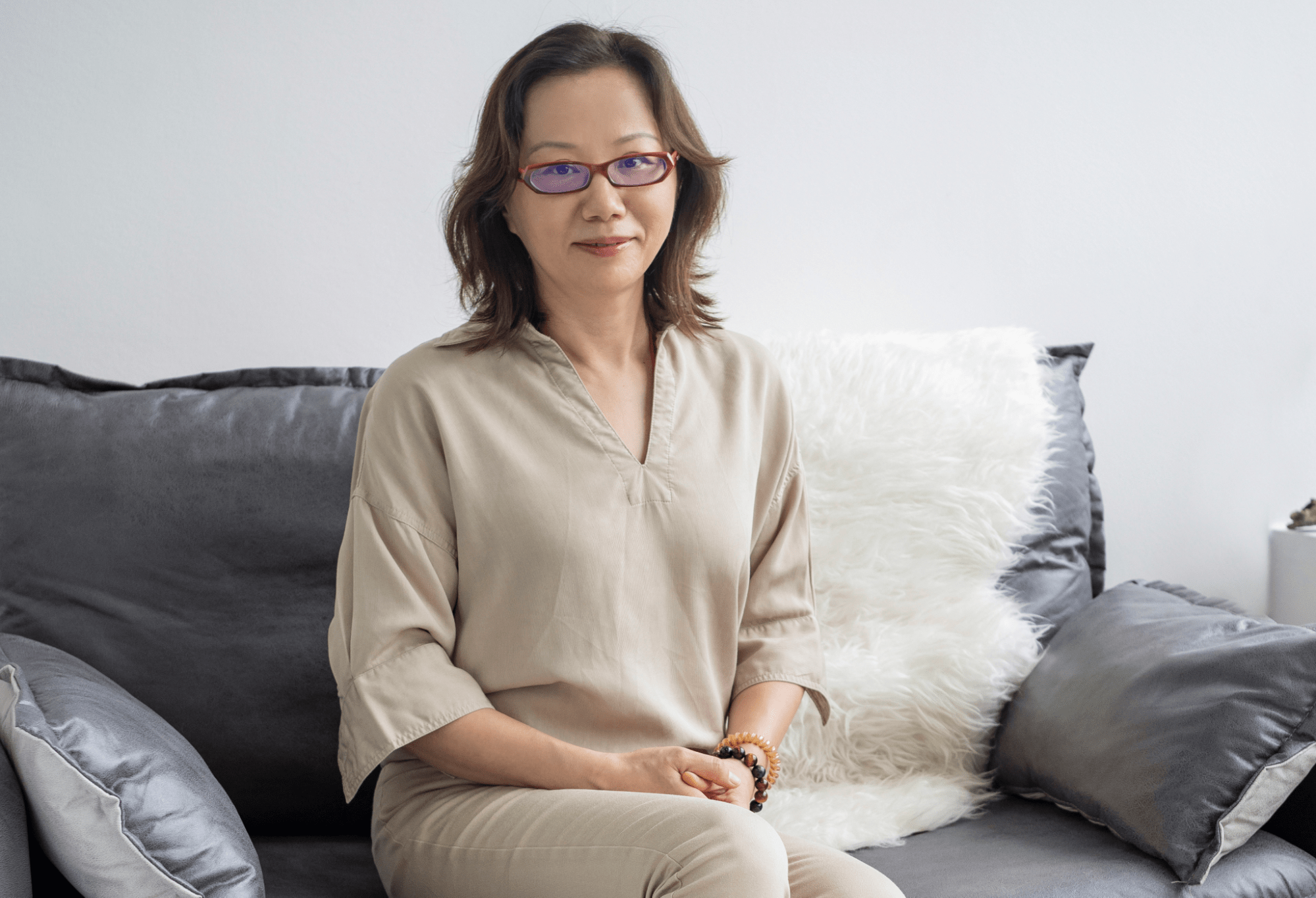Women entrepreneurs in Singapore
The girlboss. Female entrepreneur. Lao ban niang. She’s confident and in charge. She hasn’t just broken the glass ceiling; she’s built up her own business.
But starting from the ground up is never easy. Being a woman in a male-dominated business world comes with its fair share of challenges, from not being taken seriously enough, to being stereotyped as emotional.
We spoke to Jane Neo from KeaBabies – a baby and maternity lifestyle brand, Rachel Ng from Lifestream Group – a health supplements brand, and Judy Zhang from Epitex – a bed linen company, who shared what they’ve faced as women entrepreneurs in Singapore.
Note: All photos for illustration purposes only.
1. Not being taken seriously even by friends and family
When Jane first came up with the idea for KeaBabies, she ran it by her husband, friends, and family, expecting straight up support for her business venture.
But even with a solid idea, Jane’s loved ones didn’t think she was serious about pursuing it. Many felt that she was “no action, talk only”, especially since she had limited knowledge and background in retail.
All the more, Jane felt like she had to work twice as hard to prove she was taking this seriously as she juggled demands of a new business, a newborn son, and a one-year old son. “I went through a steep learning curve. I dived into research, business talks, and reading a lot of books by startup founders. Then I studied baby brands and bought products to conduct my own research,” she shared.

Jane (third from left) now counts her husband, Ivan (second from left) as one of her biggest supporters, who also works alongside her in KeaBabies.
Image credit: KeaBabies
She added that she did all this on her own and with her own money to build a brand she could be proud of, showing those around her that she had been serious about this from the get go.
In the short span of five months, Jane was ready to launch her first product – that was when her husband saw how Jane was earnest about this brand. Needless to say, he was ready to jump on board to fully support Jane.
Today, KeaBabies has 45 staff members, and is available in Singapore, USA, UK and Germany through Amazon.
2. Being dismissed in male-dominated industries
In Singapore, entrepreneurship is quite the boys’ club, where women only make up 25% of business owners here. And Jane definitely felt it whenever she went for networking sessions with fellow entrepreneurs.
As one of the few women in the room, she found it hard to give her input without being interrupted by other men. They were quick to dismiss her, and would rather talk shop with her husband instead.

Rachel found that the Japanese were not used to seeing a woman in charge of decision making, let alone, an entire business.
Image adapted from: Lifestream Group
Rachel also faced something similar in her initial days when she went to Japan to source for facilities for Lifestream’s pioneer line of functional supplements.
“The representatives, mainly Japanese men, would make casual remarks that routine and mundane work was best done by ladies. Even in the boardroom, you would have few women sitting at the far end while the men, who make up the majority, led the discussion and decision making,” she said.
For both women, the only solution they found to overcome these problems was to learn to pick their battles. Jane was happy to leave the networking to her husband, which meant she could focus more on the finer details of running the business.
As for Rachel, since she was the only one fronting the business at the start, this was a battle she had to forge through on her own. Over time, she proved herself to her Japanese counterparts with a strong track record and they finally saw her as their equal.
As a homegrown brand, Lifestream has since won many local awards, such as Go Global Seller of the Year at Amazon Singapore Seller Summit 2022. The brand has also expanded globally to the US, UK and Australia by growing its sales channels online with Amazon.
3. Being expected to juggle family and work
Whether an entrepreneur or just an employee, it’s expected that women will have to juggle family and work. Mumpreneurs, especially, have a more daunting task at hand since they’re responsible for smooth operations both in the office and at home.

It goes without saying that family would always come first, even for these women bosses.
Rachel, for example, moved to Hong Kong with her husband where they had two young kids. When the opportunity arose, she decided to return to Singapore alone to start Lifestream. Her well-meaning mummy friends thought she was making a mistake, as she wouldn’t be able to keep tabs on her kiddos’ education while they were in separate countries.
Rachel decided that values are key in moulding her children’s character and so, she focused on that instead.
“I wasn’t too concerned with whether or not my children were acing their exams. I gave them independence, but taught them values like taking responsibility for their own school work. I also have a supportive husband, so I was able to build the business,” she said.
This expectation is true even for those who aren’t mums, as Judy shared with us. She’s in a unique position, as her husband passed away and they didn’t have kids. While this may mean she would have more time to focus on her business, she still prioritises family.

Judy had to miss a number of family celebrations for the business, but felt it was necessary in pursuit of her passion.
Image adapted from: Epitex
Judy sacrifices other things to keep this balance. When her business was in its initial stages, she led an active lifestyle, spending a lot of her time outdoors. She also enrolled in online university courses. However, over the years, she’s had to compromise on these for the sake of her business.
“My business is the focus now, and I have to put aside other things like personal downtime to make sure the business grows in the right direction. I’ll play catch up on my hobbies when I have time again,” she said.
Although it seems that Judy’s sacrifices have been many, the pay off has been worth it. Since its inception in 1997, Epitex has grown a customer base of 1 million customers in Singapore.
4. Being stereotyped as emotionally-driven in the boardroom

Think of women bosses and words like “emotional” might come to mind. There’s a common misconception that women in leadership either flare up at the smallest things or break under pressure.
That’s what Rachel faced while she was in Japan. “I had to be mindful whenever I dealt with my Japanese contacts,” she shared.
Instead, Rachel had to resort to showing her professionalism through acting on commitments and making sure deliverables are in order. She could show how well-prepared she was with facts and figures – an effort that eventually worked to her favour.

Remote working was also a challenge
Fortunately, for Jane and Judy, this wasn’t something that they faced much. Instead, they used their “emotional” instincts to their advantage, allowing them to strengthen how they run their teams.
This was especially useful with many employees working remotely. They also put it on themselves to ensure their staff’s mental and emotional wellbeing weren’t neglected, especially with the lack of face-to-face interaction.
Jane made it a point to reach out to her team on a weekly basis to be more involved in their lives: “I’m an introvert but I would talk to them, ask them about their families and just share whatever has inspired us in the past week. It’s these small actions that I feel show the team your commitment through your actions, and they’ll feel more connected to each other and to you.”
Judy also felt that there was a loss of culture with everyone on WFH. To counter this, she’s constantly thinking of ways to establish a stronger sense of belonging among her team. To her, she feels like a proud mama hen when she watches her team grow and achieve in and out of work.
5. Feeling alone on the female entrepreneurship journey
Something all three women experienced when starting their own business was how lonely the journey felt. Even though they had a support system of friends and family, they felt that no one could truly empathise with their situation.

A network of female entrepreneur friends has given Rachel and Jane a support system where they can share their struggles and experiences
Now that they’ve been running their businesses for a while, all three emphasised the importance of women supporting each other in entrepreneurship.
Jane has sought out her own small business entrepreneur community where more than 95% of its members are women in leadership roles. This has become her safe space to learn from other ladies who’ve been through the same struggles.
Rachel too, has a mix of female professionals and entrepreneurs who she catches up with regularly. She finds that she’s able to relate to their trials in the boardroom and at home. They’re able to share openly and receive advice from each other.
But, they aren’t just there for her to rant to. Doing business can be cutthroat, with people pitting companies against each other. With women supporting women, however, she finds that these networks promote celebrating wins instead of fuelling jealousy and competition.
6. Lack of confidence due to social “norms”
With issues like unsupportive families and gender biases facing women entrepreneurs, it’s no wonder that many of them carry self-doubt when placed in leadership positions.
Jane, for example, did not have a lot of confidence in succeeding when KeaBabies was still in its infant stages. “I had a lot of self-doubt, even before I wanted to embark on this journey. There were many others who also had doubts that I could really start this on my own,” she said.

Jane had self-doubts at the beginning of her e-commerce journey, but has since grown in confidence just by taking each day one step at a time.
Image credit: KeaBabies
Without getting overwhelmed by the “big picture”, like global expansion or even hitting sales targets, Jane worked out actionable details, committing to things she could accomplish just for the day instead of what she had to do for the month or the year.
This steady progress helped to build her business eventually. And when she looked back at what she had accomplished, it helped to boost her confidence to continue committing to a cause she believed in.
Celebrating International Women’s Day with Amazon Singapore
These three women entrepreneurs show that while gender biases can be challenging, it’s possible to emerge victorious too. And in celebration of International Women’s Day, Amazon is putting women-led businesses at the forefront.

From lifestyle products to home improvement, healthcare and even groceries, the businesses featured in the month of March 2022 are all fronted by women entrepreneurs who’ve faced similar challenges to come out on top. You can check these small businesses out in the link below.
And if you’re a small business owner in Singapore yourself, you can leverage Amazon to expand your business locally and globally. You’ll have a variety of tools available, like Fulfillment by Amazon, which aids in packing and shipping logistics, and even customer servicing, and Brand Registry to protect brands.
These are just some of the 255 tools available for businesses to jumpstart their e-commerce journey. Best of all, many of these are free.
If you’ve been inspired by Rachel, Jane and Judy to go into retail too, there are free webinars on selling on Amazon, as well as seller roundtable discussions available.
Both the professional and individual plans for sellers on Amazon.sg are now free. Original fees for the individual plan were at S$1 per unit sold, while its professional plan was at a fee of S$29.95 a month. For Amazon.com, the individual plan for sellers costs US$0.99 per unit sold and US$39.99 per month for the professional plan.
Meanwhile, new sellers to Amazon.com can also enjoy up to US$50,000 in support for branded sales, $200 in Amazon Vine credits and $100 in Transparency credits, when they enrol in Brand Registry.
With the advice shared by fellow female entrepreneurs, and help and resources at your disposal, taking that first step into starting your own business can be less intimidating. Now you’re on your way to becoming a girlboss too.
Find out more about female-run businesses on Amazon here
This post was brought to you by Amazon Singapore.

Drop us your email so you won't miss the latest news.









